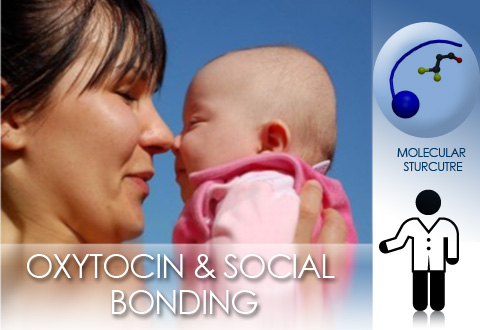Check out other stories from the Latest News
Oxytocin May Improve Social Interaction in Autism
By Catherine Croft Swanwick, Ph.D. on July 26, 2012

Overview: New evidence suggests that administration of the neuropeptide oxytocin may improve social interaction among people with Autism Spectrum Disorders (ASD).
Background: Oxytocin is well known as a neuropeptide which shapes social behavior. Its expression is regulated by parent-infant bonding and variants of its gene, OXTR, have been linked to ASD.
What’s New: Two recent studies show that an oxytocin nose spray affects social interaction. One research team showed that ASD individuals who took the oxytocin nose spray improved their ability to discriminate non-verbal social cues and increased their attention to other people’s eyes. Another research group demonstrated that fathers who took the oxytocin nose spray bonded more with their infant during a play session, leading to enhanced oxytocin expression and social interaction in the infant, as well.
Why it’s Important: This evidence provides support for the therapeutic potential of oxytocin for ASD. Moreover, oxytocin delivery to the parent instead of the infant may still enhance social behaviors in infants at risk for ASD. However, it should be noted that effects of the oxytocin nose spray are short-lived and may vary among individuals depending on ASD symptoms and severity.
Help me understand :
| Source(s) : |
| Tweet |

